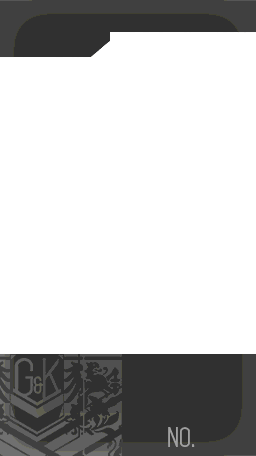Ranking of this Doll's specs relative to other Dolls of the same type.
L85A1: Difference between revisions
No edit summary |
AutumnsFall (talk | contribs) No edit summary |
||
| Line 34: | Line 34: | ||
|tile5=0 | |tile5=0 | ||
| weaponinfo = | |weaponinfo = | ||
L85A1 | The L85A1 is the British Armed Forces' designation for the SA80. It is a selective-fire, gas-operated, rotating-bolt, bullpup assault rifle designed by the Royal Small Arms Factory at Enfield. It would be the last in a long line of British weapons (including the Lee–Enfield family) to come from the venerable armory. The L85A1 has been the standard issue service rifle of the British Armed Forces since 1987, replacing the L1A1 variant of the FN FAL. | ||
In 1969, the Enfield factory began work on a brand new family of weapons to replace the FAL currently in service with the British military. This new rifle would be chambered in a proprietary 4.85×49mm intermediate cartridge. While the experimental weapon family was very different from the earlier EM-2 prototypes in terms of internal design and construction methods, its bullpup configuration and optical sight were very clearly descended from those earlier experiments. The weapon's sheet metal construction, as well as the design of the bolt, bolt carrier, guide rods, and gas system showed strong similarities to the Armalite AR-18.<ref name = "L85A1 Wikipedia">[[wikipedia:SA80|Wikipedia entry on L85A1]]</ref> | |||
In 1976, the SA-80 prototypes were ready to undergo trials. However, after NATO's decision to standardize ammunition among its members, Enfield engineers re-chambered the rifles to use the American-designed 5.56×45mm cartridge. After receiving feedback from users and incorporating the various design changes requested, including adapting the rifle for use with the heavier Belgian SS109 version of the 5.56×45mm round and improving reliability, the SA-80 weapons system was accepted into service with the British Armed Forces in 1985. The SA-80 family originally consisted of the L85A1 Rifle, the L86A1 Light Support Weapon (LSW), and the L98A1 Cadet GP Rifle. The rifles would be issued to British troops in October of 1985. After entering service, L85A1 immediately saw action in many modern conflicts such as Northern Ireland, Bosnia, and the First Gulf War. | |||
Soon after being adopted for service, problems began to surface. During troop trials held between 1986 and 1987, testers noted a litany of issues with the rifles: components were found to be insufficiently robust, the LSW's bipod lock often failed to hold the bipod legs in closed position, the plastic furniture was melted by insect repellent, metal parts were quick to rust in jungle environments, and the weapon's mechanism was highly susceptible to dusty and arctic environments. When the L85A1 and L86A1 were first sent into major combat during the Gulf War, individual rifle performance was appalling. The L85A1 proved unreliable in semi-automatic mode, and slightly better in fully automatic mode. Specific complaints regarding the L85A1 included: the poor quality plastic furniture fell apart and the gun was damaged easily; the magazine release catch was easily knocked accidentally, dropping the magazine at inopportune times; the catch on the top cover over the gas mechanism was too weak and constantly popped open, so it had to be taped down; only 26–28 rounds could be loaded in a magazine because the springs were weak, and magazines also had to be kept very clean and the lips checked for dents. | |||
Immediately after the first Gulf War, the British Ministry of Defense (MOD) commissioned the LANDSET Report, which investigated the combat effectiveness of the L85A1 and L86A1. This report heavily criticized the acceptance of the weapon into service, and identified in excess of 50 design faults. They cited issues with the magazine release catch, the plastic safety plunger which became brittle in cold climates, and fragile firing pins. The LANDSET report was leaked to the British press, at which point the Ministry of Defense claimed that it was fake. While it was later admitted that the report was a genuine document, the MOD continued to downplay its significance, and only seven of the 50 faults identified were addressed by subsequent modifications.<ref name = "Forgotten Weapons L85A1">[https://www.youtube.com/watch?v=gDCRop6CRwY Forgotten Weapons video on the L85A1]</ref> | |||
The MOD finally began to take the SA80 family's issues seriously in 1992, but procuring entirely new weapons was considered too expensive. As a result, a more extensive modification program was executed. In 2000, German weapons firm H&K (then owned by British defense conglomerate BAE Systems) was contracted to upgrade the SA80 family of weapons. H&K reviewed the rifle and produced the A2 variant, which fixed (almost) all the major issues with the A1 model. Today, the British Armed Forces has entirely replaced the A1 with the more advanced, more modern, more reliable, and better performing A2 variant. | |||
|design= | |||
In-game, L85A1 is a T-Doll of around 155-160 cm of height. Her outfit is very aristocratic in its design. Its main color scheme is a combination of red, blue, and white: the same as the UK's national flag, the Union Jack. Long pink hair hangs well past her knees, and deep blue eyes gaze out from behind her red rimmed glasses. The national flower of the UK, the Red Rose, can be found on her hat as an ornament. | |||
|gallery=<gallery> | |gallery=<gallery> | ||
| Line 55: | Line 56: | ||
</gallery> | </gallery> | ||
| trivia = | |trivia = | ||
*L85A1's uniform is a reference to the British Queen's Royal Guard. Her version is colored like a Union Jack, has leggings, and sports a different hat, but the two uniforms are otherwise extremely similar. | |||
*Differing from most other countries that use bolt-action/semi-automatic rifles as ceremonial drill weapons, the British ceremonial drill rifle is an SA80 variant, hence the T-doll's outfit resembling a ceremonial guard uniform. | |||
* L85A1's uniform is a reference to the British Queen's Guard. Her version is colored like a Union Jack, has leggings, and | |||
}} | }} | ||
Revision as of 06:39, 2 October 2020
| L85A1 | Story | Quotes |
L85A1 68   | |
| Gun Information | |
|---|---|
| Full name | L85A1 IW (Individual Weapon) |
| Country of origin | United Kingdom |
| Manufacturer | RSAF Enfield Lock, Royal Ordnance Nottingham, BAE Systems Lands & Armament |
| Game Information | |
| Faction | Griffin & Kryuger |
| Manufactured / Revised by |
I.O.P. |
| Voice actor | Ayamiya Yukiko |
| Artist | MKiiiiii |
| Released on | CN, TW, KR, EN, JP |
| Chibi Animation | |
| Variant:
Click the marked area to switch between animations. For details regarding animations, please see Animations on the Wiki. | |
| View page template | |
How to obtain
NORMALHEAVY Timer 2:50:00. See T-Doll Production for details.
DROP Can be obtained from many battle stages from Chapter 1-3 onward.
REWARD Not obtained as a reward
Exclusive Equipment
There is no exclusive equipment for this T-Doll.
Union Skill
There is no union skill for this T-Doll.
Stats / Data
| 47(x1) → 94(x1) / 470(x5) | 20(x1) / 60(x5) | 20(x1) / 60(x5) |
|
| ||||||||
|
| ||||||||
| 10 | 0 | ||||||||
| 20% | 50% | ||||||||
| 15 |
Ranking of this Doll's specs relative to every other Doll.
Weapon Background
The L85A1 is the British Armed Forces' designation for the SA80. It is a selective-fire, gas-operated, rotating-bolt, bullpup assault rifle designed by the Royal Small Arms Factory at Enfield. It would be the last in a long line of British weapons (including the Lee–Enfield family) to come from the venerable armory. The L85A1 has been the standard issue service rifle of the British Armed Forces since 1987, replacing the L1A1 variant of the FN FAL.
In 1969, the Enfield factory began work on a brand new family of weapons to replace the FAL currently in service with the British military. This new rifle would be chambered in a proprietary 4.85×49mm intermediate cartridge. While the experimental weapon family was very different from the earlier EM-2 prototypes in terms of internal design and construction methods, its bullpup configuration and optical sight were very clearly descended from those earlier experiments. The weapon's sheet metal construction, as well as the design of the bolt, bolt carrier, guide rods, and gas system showed strong similarities to the Armalite AR-18.[1]
In 1976, the SA-80 prototypes were ready to undergo trials. However, after NATO's decision to standardize ammunition among its members, Enfield engineers re-chambered the rifles to use the American-designed 5.56×45mm cartridge. After receiving feedback from users and incorporating the various design changes requested, including adapting the rifle for use with the heavier Belgian SS109 version of the 5.56×45mm round and improving reliability, the SA-80 weapons system was accepted into service with the British Armed Forces in 1985. The SA-80 family originally consisted of the L85A1 Rifle, the L86A1 Light Support Weapon (LSW), and the L98A1 Cadet GP Rifle. The rifles would be issued to British troops in October of 1985. After entering service, L85A1 immediately saw action in many modern conflicts such as Northern Ireland, Bosnia, and the First Gulf War.
Soon after being adopted for service, problems began to surface. During troop trials held between 1986 and 1987, testers noted a litany of issues with the rifles: components were found to be insufficiently robust, the LSW's bipod lock often failed to hold the bipod legs in closed position, the plastic furniture was melted by insect repellent, metal parts were quick to rust in jungle environments, and the weapon's mechanism was highly susceptible to dusty and arctic environments. When the L85A1 and L86A1 were first sent into major combat during the Gulf War, individual rifle performance was appalling. The L85A1 proved unreliable in semi-automatic mode, and slightly better in fully automatic mode. Specific complaints regarding the L85A1 included: the poor quality plastic furniture fell apart and the gun was damaged easily; the magazine release catch was easily knocked accidentally, dropping the magazine at inopportune times; the catch on the top cover over the gas mechanism was too weak and constantly popped open, so it had to be taped down; only 26–28 rounds could be loaded in a magazine because the springs were weak, and magazines also had to be kept very clean and the lips checked for dents.
Immediately after the first Gulf War, the British Ministry of Defense (MOD) commissioned the LANDSET Report, which investigated the combat effectiveness of the L85A1 and L86A1. This report heavily criticized the acceptance of the weapon into service, and identified in excess of 50 design faults. They cited issues with the magazine release catch, the plastic safety plunger which became brittle in cold climates, and fragile firing pins. The LANDSET report was leaked to the British press, at which point the Ministry of Defense claimed that it was fake. While it was later admitted that the report was a genuine document, the MOD continued to downplay its significance, and only seven of the 50 faults identified were addressed by subsequent modifications.[2]
The MOD finally began to take the SA80 family's issues seriously in 1992, but procuring entirely new weapons was considered too expensive. As a result, a more extensive modification program was executed. In 2000, German weapons firm H&K (then owned by British defense conglomerate BAE Systems) was contracted to upgrade the SA80 family of weapons. H&K reviewed the rifle and produced the A2 variant, which fixed (almost) all the major issues with the A1 model. Today, the British Armed Forces has entirely replaced the A1 with the more advanced, more modern, more reliable, and better performing A2 variant.
Character Design
In-game, L85A1 is a T-Doll of around 155-160 cm of height. Her outfit is very aristocratic in its design. Its main color scheme is a combination of red, blue, and white: the same as the UK's national flag, the Union Jack. Long pink hair hangs well past her knees, and deep blue eyes gaze out from behind her red rimmed glasses. The national flower of the UK, the Red Rose, can be found on her hat as an ornament.
Gallery
Main artwork
Gallery consisting of artworks used primarily in-game. For information on how to obtain certain costumes, see Skin Catalogue.
-
Profile image
-
Full artwork
-
Full damaged artwork
Trivia
- L85A1's uniform is a reference to the British Queen's Royal Guard. Her version is colored like a Union Jack, has leggings, and sports a different hat, but the two uniforms are otherwise extremely similar.
- Differing from most other countries that use bolt-action/semi-automatic rifles as ceremonial drill weapons, the British ceremonial drill rifle is an SA80 variant, hence the T-doll's outfit resembling a ceremonial guard uniform.
References
| List of T-Dolls |
|---|
















